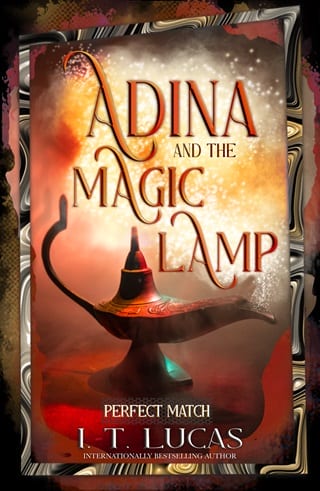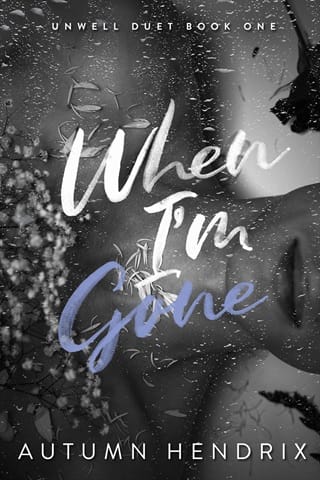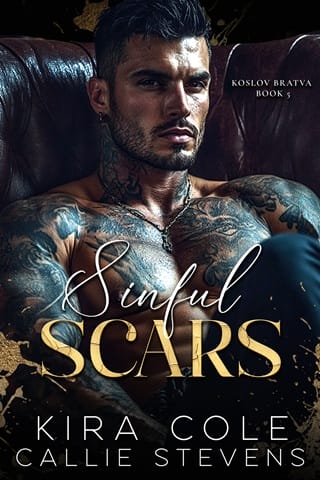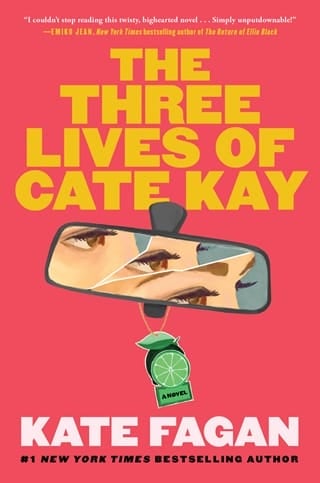2. Vas
2
VAS
A s the kid began reading his story, Jenna gave him her full attention, making me irrationally jealous. I wanted her to focus on me so I could bask in the warmth of her smiles and the sparkle in her eyes.
"I was sitting on my balcony," Luis began reading. "I was doing my homework when suddenly my parrot Azul flew past me with a flurry of feathers. My heart skipped a beat as I watched him soar up to the sky." Luis paused and looked at Jenna, seeking her approval.
"It's a good opening," she said. "Is there any more?"
I didn't like that she suddenly found Luis interesting.
The kid was at least ten years younger than Jenna, and he wasn't nearly as good-looking as I was. It wasn't boasting. It was just the truth.
"Of course." Luis shifted his gaze back to his notebook. "I jumped up, my mind racing. Azul had never ventured this far before. I called out to him, my voice cracking with fear, but he ignored me, circling above, his cries echoing with exhilaration. I watched in awe, my heart pounding in sync with his frantic beats as he flew circles around the building. Suddenly, Azul dove, landing on the railing beside me. I extended my arm, and as he hopped onto my hand, I could feel the rapid flutter of his heart, which mirrored my own. He had tasted freedom, and I had a feeling that from now on, he would not be content with his cage anymore."
His story was good, but not as good as mine. I didn't like to show off, but I resolved to read mine next.
"I love your story," Jenna said. "I could feel the excitement of your parrot discovering freedom for the first time, which is a mark of great storytelling. The only thing that needs work is the ending. It felt a little rushed. You always need to ask yourself what you want the readers to remember about your story."
Luis nodded.
Jenna looked around the classroom. "Who's next?"
I raised my hand.
Her big blue eyes widened, and a gorgeous smile spread across her face, making her right cheek dimple like a beauty mark. "Thank you, Vas. Please, go ahead."
I cleared my throat, feeling self-conscious all of a sudden.
I've faced down royalty, billionaire investors, and my father. I can tell a story to a bunch of students .
But it wasn't about the students, now, was it? It was all about Jenna.
I wanted to impress my teacher. Hell, I wanted to do much more than that to the beautiful Jenna, but impressing her would have to do.
I forced myself to start. "Gods do not need flying machines, but that doesn't mean they don't enjoy racing across the heavens in their shining chariots and hearing humans gasp and cheer. Demons don't need flying machines either, but envy consumes their hearts when they see the gods with their splendid flying chariots soar through the skies. Most lowly demons are no match for the gods and their vimanas, but Ravana is no ordinary demon, and he has his black heart set on a vimana." I continued recounting the action-filled battle between Ravana and his brother as they fought for the right to possess the coveted diving-flying machine.
When I finished, I looked up at Jenna and was relieved to see her smiling warmly at me.
Did she like my story? Was she intrigued?
If that earned me a spot at the center of her universe, I would tell her a thousand stories.
"That was excellent imagery, Vas," she said.
My treacherous heart stuttered for a second.
"I've heard of Ravana before, but not about the vimana, not until now. Your story painted a very vivid picture in my mind. Well done, Vas."
Her praise made me grow two inches taller.
"Are they real?" someone asked.
"They're part of Hindu mythology," I said, not wanting to dive too deeply into the subject. I wasn't a theologian, and my knowledge was superficial.
"That's an excellent segue into the second part of our lesson today," Jenna said. "We've looked at creative influences, including autobiographical details, journals and diaries, vivid memories, and nonfiction sources like news articles. Now, I want us to dive into genre fiction, which includes mythology." Jenna glanced my way. "I'm not implying that mythology is fiction, but it is a form of storytelling that's very influential, and there is a lot we can learn from the enduring strength of scriptures and myths." She smiled. "After all, we all want our stories to live forever in people's hearts and inspire them to improve."
"Or worsen," piped up one of the older, crustier students. "Religion can be used for good and evil, and sometimes I wonder which one wins."
"This is true, Morty. But let's focus on the positive aspects, as these make a story enduring and universal."
Jenna would make a great diplomat. She knew how to put a positive spin on almost any topic and made people feel at ease.
As she leaned against her desk and moved the discussion into the various tropes of genre fiction and how myths and legends were the basis for many of those universal motifs, I focused on her lovely face and her sincere expression.
She differed from the women I'd met and associated with at home. She was less perfectly put together, more natural, and unapologetically genuine.
I found her enchanting.
My mother would have sneered at her outfit, calling it a classic Barbie doll getup, and she wouldn't be wrong. Jenna wore a pale pink sundress cinched at the waist, the skirt flowing down her slender legs to a little below her knees, a lightweight white sweater covering her shoulders and arms, and her long blonde hair pulled back into a loose bun. A few strands had liberated themselves from that prison, conspiring to frame her beautiful face and focus attention on her full lips and big blue eyes.
I loved everything about Jenna's all-American girl looks, including her fresh-faced enthusiasm and boundless optimism. She was a gem among her much moodier colleagues—a bunch of sour-faced liberal arts professors who hated everyone and everything.
"Remember, there’s a fine line between folktales and fairy tales," Jenna said. "Your story doesn't have to fall squarely on one side of that line or the other, but it needs to have the same feeling of timelessness. Every culture has its mythology that has been passed down through the generations. Pick one that speaks to you and adapt it into a contemporary tale."
"I don't get what…adapt means in this context," Luis admitted.
"Let me try to explain it better," Jenna said. "I'm looking for a variation on the traditional way the story is usually told. It doesn't have to be a huge change like the retelling of Pride and Prejudice as a zombie horror story, but I want you to retell it in a way that's fundamentally different from the source or any version of it that you might have read or watched." Her gaze swept across the room until finally settling on me. "Use this assignment to explore a myth that moved you as a child or a teenager. A story that left a deep impression on you. You can gender-bend it or even alter the sexual orientation of the main couple if you are comfortable doing so."
"Not likely," Morty grumbled.
"Oh, Morty." Jenna shook her head. "I believe you could do a lot with a version of something like Johnny Appleseed or the legend of Paul Bunyan simply by using a female protagonist. Regardless, I look forward to seeing what you produce. And by that, I mean all of you." She waved a hand over the classroom. "For the rest of today's class, we're going to talk about various examples of fairy and folktales from cultures around the world, and by Thursday, you should narrow down your options to one or two. Sound good?"
After a chorus of yeses, Jenna nodded, uncrossed her ankles, and glided to the whiteboard.
As I considered the story I might adapt, my mind drifted to One Thousand and One Nights . My mother had given me the book when I was a boy, and there was one story in particular that I had read repeatedly. I hadn't thought of it in years, but maybe it was time I revisited it and found a way to twist it around for this assignment.
 Fullepub
Fullepub 



